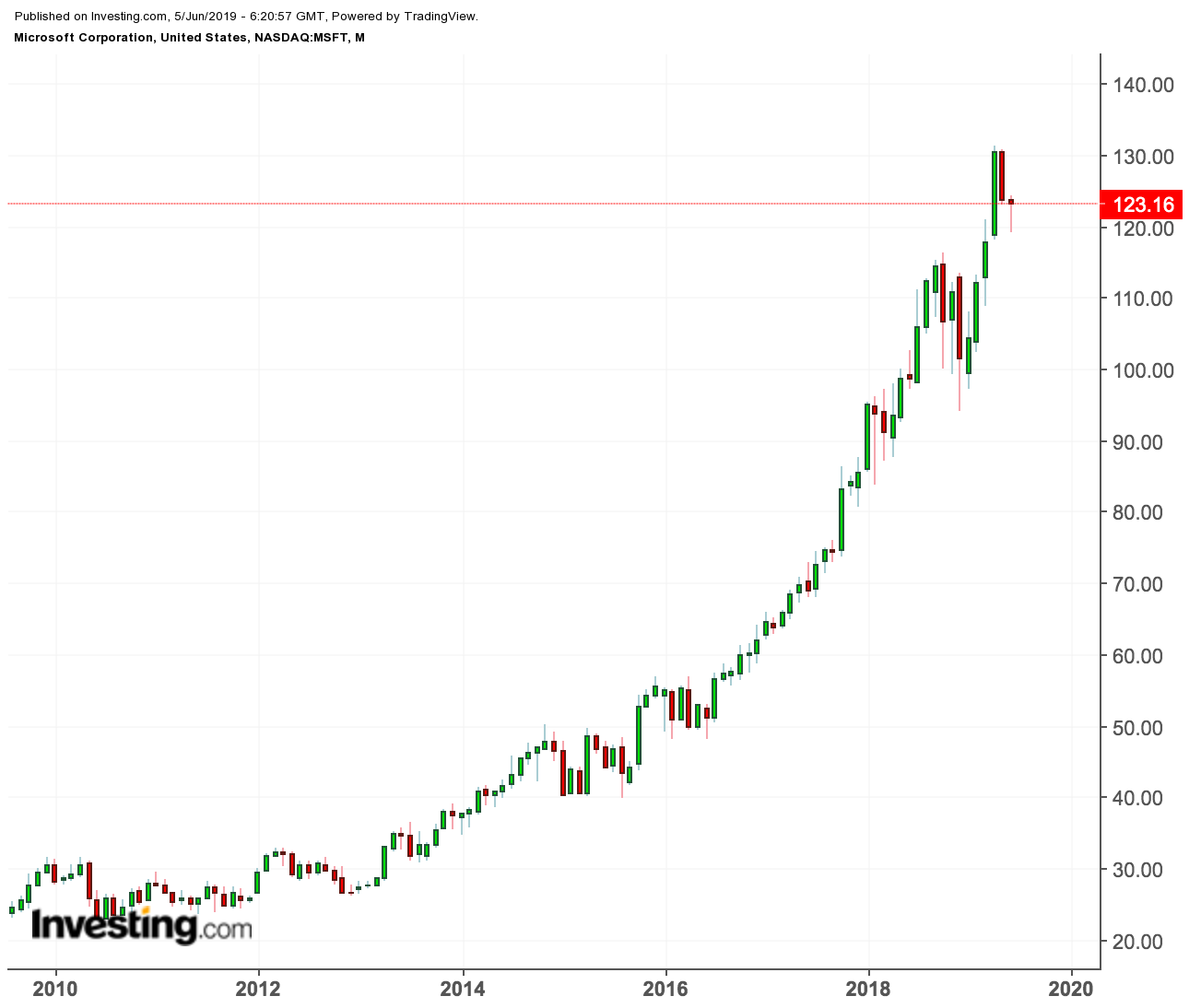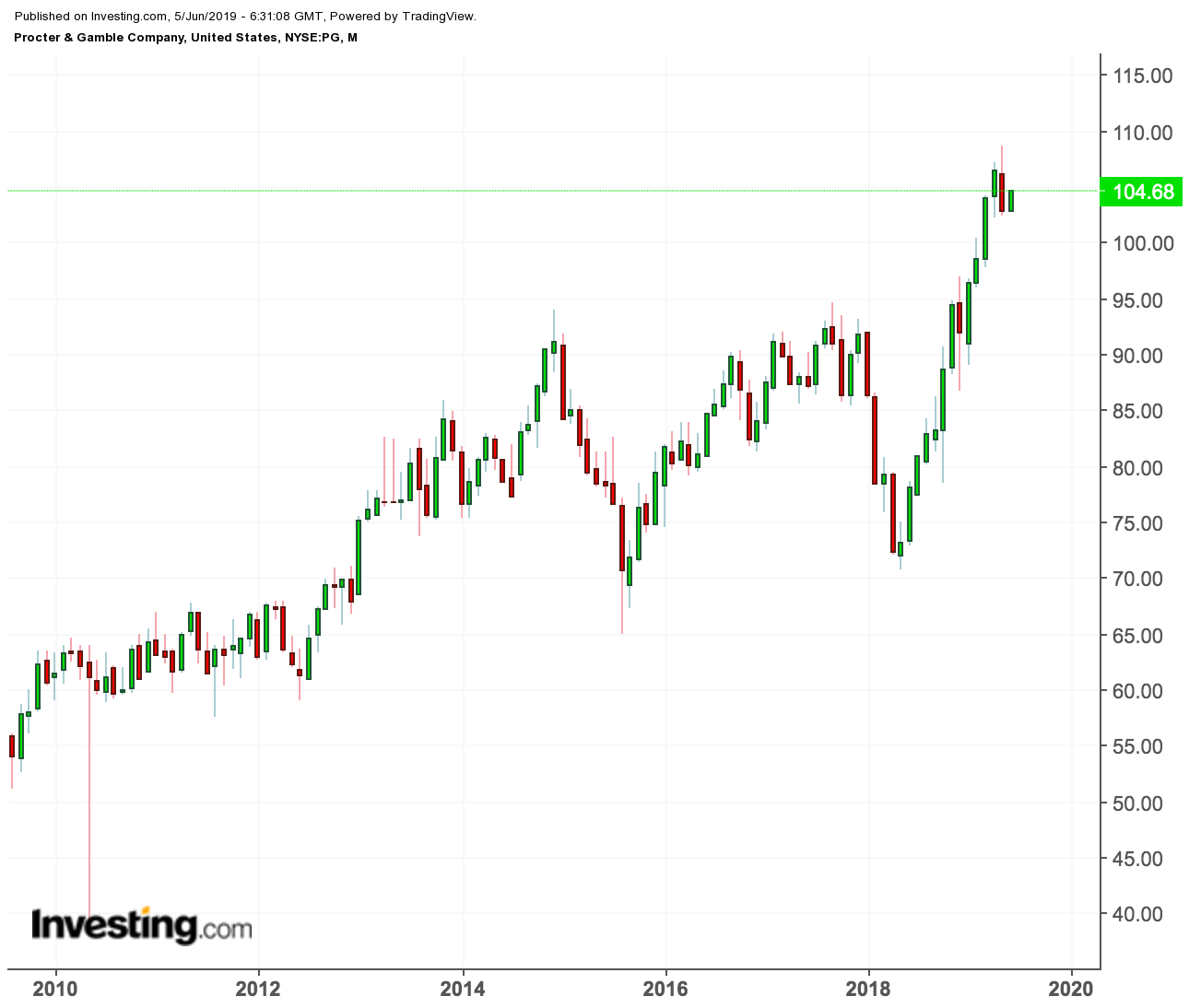The word recession is appearing more often in economic forecasts these days. And there are very strong reasons for economists to bring back this dreaded word in their commentaries. As the U.S. expansion reaches its 10-year mark this month, the risks to this unprecedented boom are growing.
The most alarming are the threat of prolonged trade wars with China and Mexico that could damage businesses and consumer spending, forcing the U.S. central bank to cut rates and, as a consequence, further inflate asset prices.
A global recession could start within nine months if President Donald Trump imposes 25% tariffs on an additional $300 billion of Chinese exports and Beijing retaliates, according to Morgan Stanley. JPMorgan Chase & Co., in a separate note this week, said the probability of a U.S. recession in the second half of this year had risen to 40% from 25% a month ago.
Assuming that these assessments carry weight and we’re more likely to hit a recession in the next 12 months, which are the stocks that could withstand this eventuality better than others? Here are our two picks:
1. Microsoft: All-Weather Friend
One thing you can’t ignore while picking a stock for your long-term portfolio is the company’s ability to keep paying dividends, no matter how badly the economy is doing.
Many investors mistake Microsoft (NASDAQ:MSFT) for a pure technology stock, which could get hurt badly if growth slows or recession hits. But in our view, Microsoft is a safe haven income stock that you should hold in order to keep the cash coming in.
The company has captured a whopping 82% of the desktop operating system market, which generates massive amounts of recurring cash for the software, services and devices producer. Office, now a subscription-based service for Microsoft’s millions of home and corporate users, continues to be a powerful driver of earnings. In the last fiscal year, these two units alone made up more than half of Microsoft's total sales.
If you're an income investor, you need to find companies like Microsoft to stash in your portfolio. These are the giants that have the power to defend their businesses and continue paying out for the rest of your life. In this volatile environment, when many top technology stocks are struggling, Microsoft is continuing its upward journey. Its shares are up 21% so far this year, having gained 464% over the past ten years. The stock closed up 2.8% yesterday, at $123.16.

Microsoft has an excellent track record when it comes to rewarding investors. Since 2004, when it first began paying a dividend, the company’s payout has swelled nearly five times. Dividend growth has been supported by a low payout ratio and strong underlying businesses.
With an annual dividend yield of 1.46%, Microsoft pays a quarterly dividend of $0.46 per share. That yield may look small to many investors, but Microsoft is still growing, while offering great upside potential, too. Including dividend payments, Microsoft has delivered 200% in total returns over the past five years.
No one can tell you how the next five years will unfold, but if you want to play it safe in the tech space, Microsoft is one of the best bets.
2. Procter & Gamble: Stodgy...But Secure
Procter & Gamble (NYSE:PG) is one of those stocks that hardly get any press coverage and are seldom bragged about at dinner parties. But just like Microsoft, P&G is a great recession-proof stock to hold.
The world’s biggest consumer product company is one of the largest dividend payers in the sector. The maker of Dawn dish soap and Pampers has hiked its dividend for 62 consecutive years. Over the past 128 years it has never stopped paying dividends, making money even during recessions, wars and droughts.
With a current dividend yield of 2.9%, P&G stock pays about $0.74 a share each quarter. This remarkable history of payouts makes this consumer stock a dependable player for those looking to defend their portfolios from economic shocks.
Another benefit of owning P&G is that in times of extreme volatility, when highly cyclical growth stocks suffer the most, slow-moving consumer staples stocks outperform. As volatility spiked during the past month, P&G stock has outperformed the benchmark index, hardly moving when the
S&P 500 fell about 5%. The shares have gained 96% over the past 10 years, and 15% since the start of this year. They closed yesterday up 0.9% at $104.68.

Bottom Line
Microsoft and P&G are the type of stocks you can rely on in both good and bad times. Both companies have a wide moat, recurring cash flows and a history of rewarding their investors. If you've bought these stocks, there's no reason to panic and sell. In fact, any short-term weakness in these names should give you an option to add more to your positions.
Which stock should you buy in your very next trade?
With valuations skyrocketing in 2024, many investors are uneasy putting more money into stocks. Unsure where to invest next? Get access to our proven portfolios and discover high-potential opportunities.
In 2024 alone, ProPicks AI identified 2 stocks that surged over 150%, 4 additional stocks that leaped over 30%, and 3 more that climbed over 25%. That's an impressive track record.
With portfolios tailored for Dow stocks, S&P stocks, Tech stocks, and Mid Cap stocks, you can explore various wealth-building strategies.
